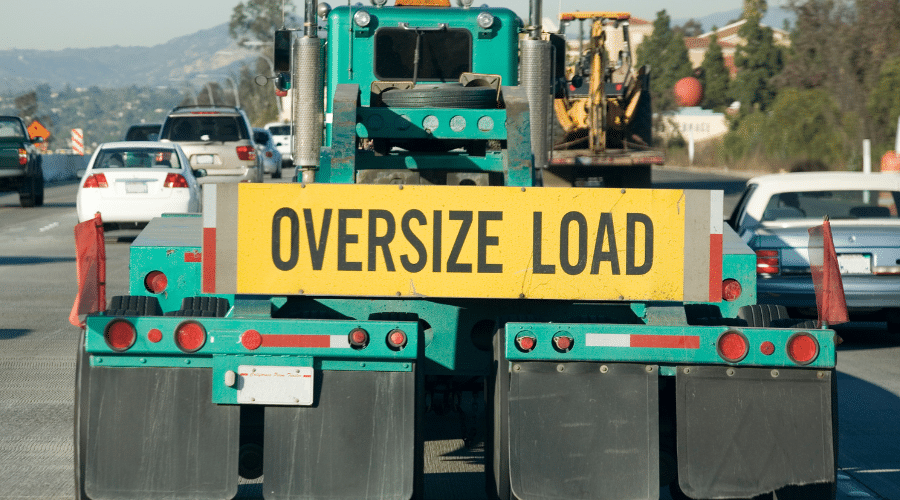Navigating Over-Dimensional Shipments
Melton Logistics – 02/22/2024
If you have traveled the highways throughout the US, you have likely seen over-dimensional shipments with warning flags, signage, and strobe flashers, among other safety precautions, making slow progress and likely accompanied by pilot vehicles. Successfully transporting oversized freight involves precise planning, preparation, and managing a plethora of variables that impact the cargo’s safe delivery. Here is a closer look at what is required to move over-dimensional cargo.
Before we start, it’s important to note that you cannot “create” an over-dimensional load. If a load is divisible or comprised of several components that combined make the load over-dimensional, it cannot be permitted. Rather that shipment, by rule, needs to be made into several smaller, legal shipments.
What Freight is Considered “Over-Dimensional”?
Over-dimensional loads are shipments that exceed the standard legal size or weight limits for a given state or route. Each state, depending upon its population, and infrastructure has varying rules/requirements for over-dimensional freight. What may need a single pilot car in one state may not require one in another or may require two pilot cars rather than one. If you are shipping or hauling over-dimensional freight, it is extremely important to understand the rules and requirements for each state throughout the transportation process.
While specific over-dimensional load regulations vary by state, generally a load exceeding 13.5 feet in height, and/or 8.5 feet in width or weighing more than 80,000 pounds is classified as over-dimensional.
Examples of over-dimensional products being shipped include but aren’t limited to:
- Farm Machinery
- Wind Turbines
- Steel Pipes
- Construction Equipment
- Boats/Aircraft/Military Equipment

Over Dimensional Load Permits and Legal Requirements
Each state is responsible for its own over-dimensional load permitting rules, escorts, and legal hours of operation. Each state’s requirements must therefore be carefully considered when coordinating shipments crossing several state lines. Depending upon the size and dimensions of your oversized shipment, the states you are traversing may require a route survey before granting a permit. This allows them to physically inspect bridges, tunnels, tight turns, and traffic congestion along the proposed route to identify any potential issues. Effective route planning manages potential shifting variables such as a bridge or road closure, during summer months, road construction, winter months winter freezes, or frost laws. Issues such as these can delay an over dimensional shipment by days costing valuable time and money especially should the permits expire while in transit.
Drivers and/or carriers generally secure the permits for the over-dimensional shipment before picking up the product. This again eliminates costly delays and ensures that everything is in order before transit. With that, it is of the utmost importance to secure accurate dimensions and information from the shipper so that the permits ordered are correct and all state requirements are adhered to throughout the transit route.
Avoiding certain roads or highways during normal daylight hours, obtaining state-specific paperwork, escorts (if necessary), and permits before pick up, and acquiring all necessary signage, flags, and lights for safe transport requires careful planning and communication.
Choosing the correct equipment to manage and complete the job is of equal importance:
- Flatbed and Step Deck trailers are typically utilized for over-width shipments
- RGN or Double Drop trailers are typically utilized for shipments that exceed legal height or weight requirements
Working with Melton Logistics
Over-dimensional shipments can be as simple as choosing the right shipping partner. Melton Logistics manages over-dimensional shipments regularly and without issue. Our team of Account Managers and Carrier Managers can assist you in navigating the permit process and getting your shipment picked up and delivered safely and without issue. How can Melton Logistics make this process seamless for you and your customers?
